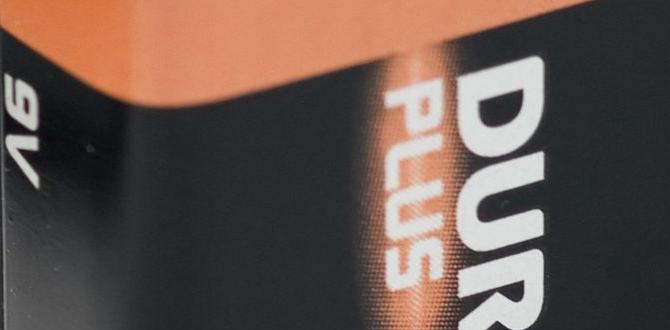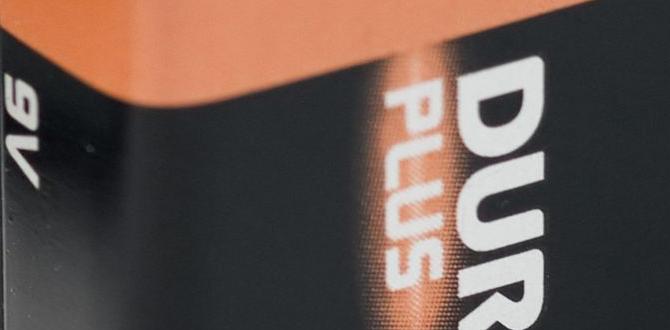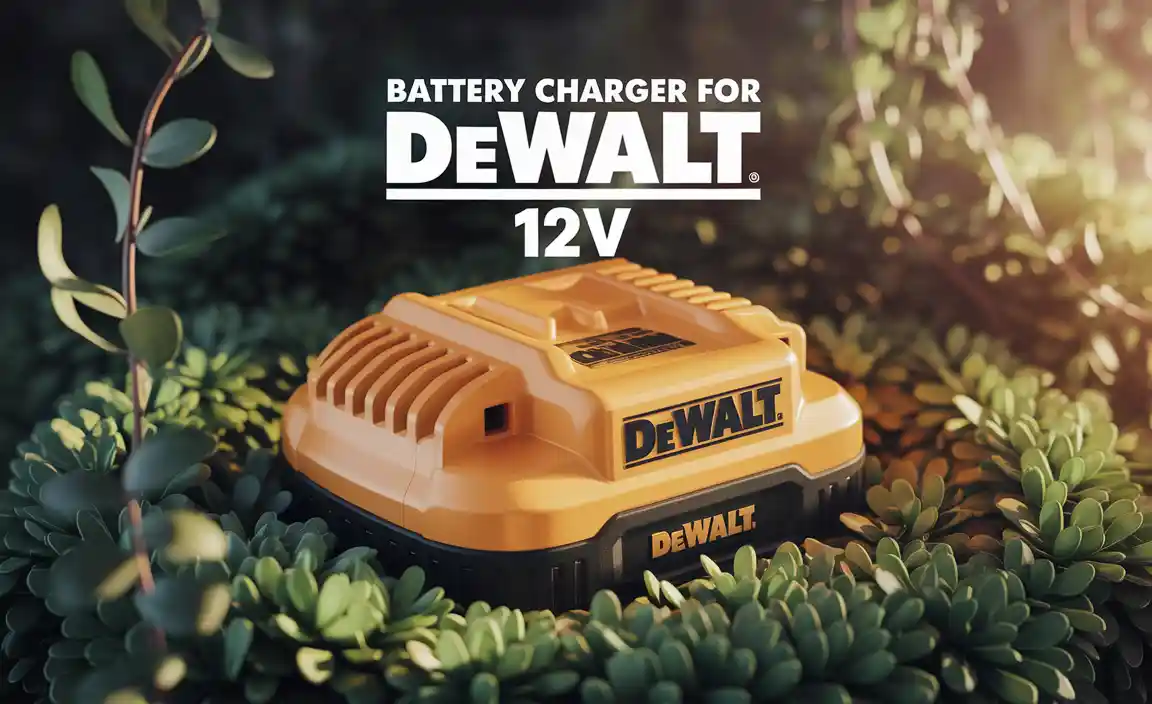If you’re searching for a cheap hybrid car battery under $100, it’s important to understand that completely new hybrid batteries typically cost much more. However, finding budget-friendly options often involves exploring options like refurbished batteries, DIY solutions for specific components, or understanding when a “cheap” repair might be the best route rather than outright replacement. We’ll guide you through these possibilities and crucial safety considerations.
Cheap Hybrid Car Battery Under $100: Your Essential Find?
Finding a brand-new hybrid car battery for under $100 is like finding a unicorn – very rare! These complex power sources are usually quite expensive, often costing thousands of dollars. If you’ve seen ads or heard whispers of a “cheap hybrid car battery under $100,” it’s crucial to know what you’re really looking at. This topic can be confusing, and if not approached carefully, it could lead to disappointment or even unsafe situations. Think of it like trying to fix a complicated electronic device; some parts might be inexpensive, but the whole system is usually a bigger investment. This guide will help you understand the real costs, explore affordable avenues like refurbished options, and empower you to make smart decisions for your hybrid vehicle without breaking the bank. We’ll break down what’s realistic and how to find the best value.
Understanding Hybrid Car Batteries: More Than Just One Pack
Many new car owners might think a hybrid car battery is just one big battery, similar to what you find in a regular car. In reality, the “hybrid battery pack” is usually made up of many individual battery modules or cells. These cells work together to store and deliver power to the electric motor and regenerative braking system.
When a hybrid battery starts to fail, it’s often not the entire pack that needs replacing. Instead, one or more of these individual modules might be the culprit. This is where the idea of “cheap” repairs or replacements can become a possibility, but it requires a good understanding of what’s going on.
Why Hybrid Batteries Can Be Expensive
Several factors contribute to the high cost of hybrid batteries:
- Advanced Technology: They use sophisticated lithium-ion or nickel-metal hydride technology designed for high performance and longevity.
- Manufacturing Complexity: The manufacturing process is intricate and requires specialized facilities.
- Safety Features: Built-in cooling systems, battery management systems (BMS), and robust casings add to the cost.
- Research and Development: Billions are invested in developing and improving these batteries.
What “Cheap Hybrid Car Battery Under $100” Really Means
When you hear about a “cheap hybrid car battery under $100,” it’s almost certainly not referring to a complete, brand-new, factory-sealed hybrid battery pack. Here’s what it likely refers to:
- Individual Battery Modules: The most common scenario is finding a single, used, or refurbished battery module for this price. If your hybrid has a twenty-module pack, and only one or two have failed, replacing just those faulty modules can be a much cheaper option than replacing the entire pack.
- Refurbished or Reconditioned Packs: Some companies specialize in taking used hybrid battery packs, testing them, replacing any internally failed modules, and then selling them as reconditioned units. These can be significantly cheaper than new, but pricing can vary wildly. Finding one under $100 is highly unlikely for a full pack.
- DIY Repair Kits: If you’re technically savvy, you might find individual battery cells or electronic components for repair under $100. This is an advanced DIY route with significant risks.
- Core Charges or Trade-ins: Sometimes, a very low price might be presented after applying a significant core charge refund for your old battery. This isn’t the actual upfront cost.
The Truth About Finding a Full Hybrid Battery Pack Under $100
Let’s be direct: a complete, ready-to-install, new hybrid battery pack for any mainstream hybrid vehicle will cost significantly more than $100. Expect prices ranging from $2,000 to $5,000 or even higher, depending on the vehicle make and model. Advertisements or listings that claim otherwise are often misleading or refer to something entirely different. It’s crucial to read the fine print and understand what you are actually purchasing.
If you find an offer that seems too good to be true, it almost always is. Focus on reputable sources and understand the product being advertised.
Exploring Affordable Hybrid Battery Options
While a new, complete pack under $100 is unrealistic, there are ways to manage hybrid battery costs. Here are some of the more viable routes:
1. Refurbished Hybrid Battery Packs
This is a popular alternative to buying new. Companies that specialize in hybrid battery services can:
- Source Used Packs: They buy retired hybrid vehicles or salvaged battery packs.
- Test Thoroughly: Each pack undergoes rigorous testing to identify any weak or failed modules.
- Replace Faulty Modules: They replace only the modules that have failed with new or good-condition used ones.
- Recondition and Seal: The entire pack is reassembled, tested again, and sealed.
Pros:
- Significantly cheaper than new packs.
- Can offer a good balance of cost and reliability.
- Often come with a limited warranty.
Cons:
- Lifespan may be shorter than a new pack.
- Warranty coverage can vary greatly.
- Availability might depend on your vehicle model.
While you won’t find a refurbished pack for under $100, prices can range from $1,000 to $3,000, which is still a substantial saving.
2. Replacing Individual Battery Modules
As mentioned, hybrid battery packs comprise multiple modules. If diagnostics reveal only a few modules are bad, replacing just those can be a cost-effective solution. This kind of repair is where you might find costs for individual components approaching or even falling under $100, but this typically refers to the cost of the part itself, not the labor or a complete solution.
How it works:
- Diagnostic: A specialized mechanic uses diagnostic tools to pinpoint which modules have failed.
- Module Replacement: Only the bad modules are swapped out.
- Rebalancing: The pack is then rebalanced to ensure all modules are working together efficiently.
Pros:
- Much cheaper than a full pack replacement.
- Can extend the life of the remaining good modules.
Cons:
- Requires specialized knowledge and tools; not a DIY job for most.
- If multiple modules are weak, this might be a temporary fix.
- Finding aftermarket individual modules under $100 each is possible but requires research.
The cost here would be for the module(s) plus labor. A single replacement module might cost anywhere from $50 to $250, depending on its type and condition.
3. Used (Salvaged) Battery Modules or Packs
You might find individual used modules or even complete used battery packs from salvage yards or online marketplaces. These are the riskiest option.
Pros:
- Potentially the cheapest upfront cost.
Cons:
- No warranty or a very limited one.
- Unknown history and condition; could fail quickly.
- Requires careful inspection and testing.
This is where you might find individual components for under $100, but again, the risk is high.
DIY Battery Repair: The Ultra-Budget (and Risky) Route
For the extremely mechanically inclined and risk-tolerant individual, there’s the possibility of DIY repair. This usually involves ordering individual battery cells, often from specialized suppliers or even from salvaged cells that have been tested. You would then need to manually assemble, test, and integrate these cells into your existing battery housing.
Tools and Skills Needed:
- Advanced automotive electrical knowledge.
- Specialized diagnostic equipment for hybrid packs.
- Battery testing and analysis tools.
- Soldering and high-voltage safety equipment.
- Access to individual battery cells (e.g., 18650 cells if your hybrid uses them, though most don’t).
Safety First for DIY: Working with hybrid battery systems involves extremely high voltages, up to 600 volts or more. Mishandling can lead to severe injury or death. Always disconnect the 12V auxiliary battery first and follow strict high-voltage safety protocols. For detailed safety guidelines, always refer to your vehicle’s service manual and consider resources like the U.S. Department of Energy’s vehicle battery safety page.
Is it possible to find parts for under $100 for DIY? Yes, individual cells might be available for less than $100 each. However, the total cost of cells, plus tools, safety gear, and potential mistakes, can easily exceed the cost of a professionally refurbished module or even a reconditioned pack.
What Battery Cost is Realistic Per Module?
Let’s break down typical costs for individual hybrid battery modules:
| Type of Module | Typical Cost Range (Each) | Condition | Notes |
|---|---|---|---|
| New OEM Module | $200 – $600+ | Brand New | Most expensive, but highest reliability. |
| Refurbished Module | $80 – $250 | Used, tested, repaired | Good balance of cost and performance. “Under $100” is possible here. |
| Used (Salvaged) Module | $30 – $150 | Used, condition unknown | Highest risk, no warranty. “Under $100” is common here. |
As you can see, “cheap hybrid car battery under $100” likely points to purchasing individual used or refurbished modules, not a full pack.
When to Consider Other Solutions
If your hybrid battery is failing and repairs look costly, it might be time to consider other options:
- Selling the Car: If the repair cost is too high relative to the car’s value, selling it might be the most financially sound decision. You could sell it as-is to a dealer who specializes in hybrids, or to someone looking for a project car.
- Trading In: Even with a failing battery, you might get some trade-in value towards a new vehicle.
- Leasing: If you’re considering long-term ownership, perhaps looking into leasing offers for newer, more efficient vehicles could be an alternative to hefty repair bills.
Safety First: High Voltage Awareness
This cannot be stressed enough: hybrid vehicle battery systems operate at dangerously high voltages. Never attempt to open or service the main hybrid battery pack yourself unless you have extensive, professional training and the correct safety equipment.
Key Safety Reminders:
- Always disconnect the 12V auxiliary battery first. This is usually a smaller battery located in the trunk or under the hood, and it powers the car’s computers and safety systems. Disconnecting it deactivates some high-voltage interlocks.
- Wear High-Voltage Insulated Gloves: These are specially designed to protect against electrical shock.
- Use Insulated Tools: Ensure all tools you use are properly insulated.
- Never Work Alone: Always have someone nearby who knows what you are doing and can help in an emergency.
- Understand Battery Pack Disablement: Learn the proper procedure for disabling the high-voltage system safely, as outlined in your vehicle’s service manual.
- Consult Reputable Sources: For safe DIY battery module replacement, seek out detailed guides from professional hybrid repair shops or reputable automotive forums that emphasize safety. Organizations like the EPA often provide information on EV and hybrid technology, including battery management.
If you’re unsure about any step, it is always best to consult a qualified hybrid technician.
Frequently Asked Questions (FAQ)
Q1: Can I really find a hybrid car battery for under $100?
A1: No, you cannot find a complete, new hybrid car battery pack for under $100. This price point usually refers to individual used or refurbished battery modules, not the entire system.
Q2: What are the risks of buying a used hybrid battery module?
A2: The main risks include an unknown history, potential for premature failure, lack of warranty, and the possibility that the module is not compatible or fully functional.
Q3: How can I tell if my hybrid battery needs replacing?
A3: Common signs include reduced fuel economy, loss of electric-only driving mode, warning lights on the dashboard (like the hybrid system warning light or check engine light), and reduced acceleration power.
Q4: Is it cheaper to repair a hybrid battery or replace it?
A4: It is often cheaper to repair a hybrid battery by replacing only the failed individual modules rather than the entire pack, especially if only a few modules are bad. If many modules are failing, replacement might become more economical.
Q5: Where can I find reputable companies selling refurbished hybrid batteries?
A5: Look for established hybrid battery specialists. You can often find them through online searches for “refurbished hybrid battery” followed by your car’s make and model. Check their reviews, warranty policies, and return procedures carefully.
Q6: Is it safe for a beginner to try and replace hybrid battery modules themselves?
A6: No, it is generally not safe for beginners. Hybrid battery packs contain high voltages that can be extremely dangerous. This type of work requires specialized training, tools, and safety equipment.
Q7: What is the average lifespan of a hybrid battery?
A7: A typical hybrid battery can last between 100,000 and 200,000 miles, or about 8 to 15 years. However, this can vary greatly depending on driving habits, climate, and maintenance.
Conclusion: Smart Choices for Your Hybrid Battery Needs
Navigating the world of hybrid car batteries can seem daunting, especially when you’re looking for budget-friendly solutions. While the allure of a “cheap hybrid car battery under $100” is strong, it’s essential to understand that this price point almost exclusively applies to individual used or refurbished battery modules, not a complete, new battery pack. A full hybrid battery replacement will always be a significant investment, typically costing thousands.
Your best bet for saving money while ensuring reliability is to explore refurbished battery packs from reputable specialists or to have a qualified technician assess whether replacing only the faulty individual modules is a viable option. These approaches offer a tangible way to reduce costs without compromising too much on the longevity and performance of your hybrid vehicle. Always prioritize safety, especially when dealing with high-voltage systems. If in doubt, consult a professional. By staying informed and making smart choices, you can keep your hybrid running smoothly without a financial shock.




